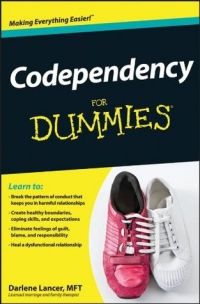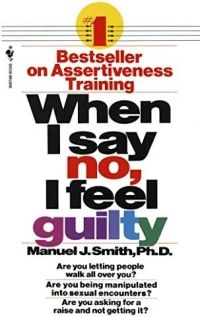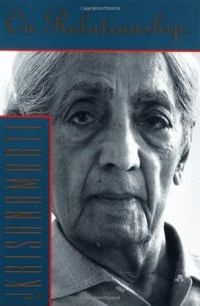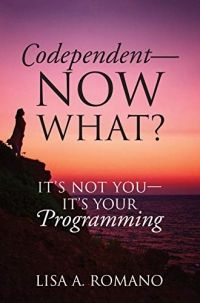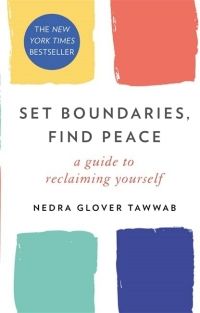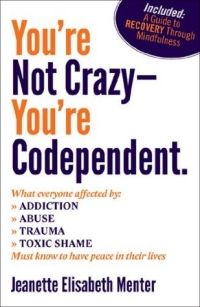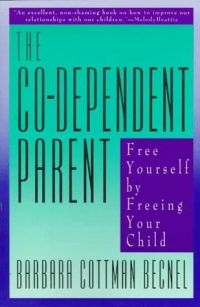Currently, having a codependency is not something health professionals can diagnose. It took me years to realize that I have it in the form of unhealthy attachments: I used to get easily attached to people I met. In 2016, fresh from college, lonely, and naïve about the world around me, I became emotionally close to a colleague who had become a friend. When I left the company, I couldn’t help but feel sad that I shed tears walking out of the office one last time. At the time, I thought that I won’t be able to hang out with them anymore. But it turned out that the ex-colleague cut off ties with me after I sent them an invite to hang out. I thought we were becoming friends — but boy, was I wrong! All I wanted during that time was a friend, but it got my heart broken instead. Woe is me. So I fell down the melancholy spiral for many years, chasing that accompaniment. I wondered what’s wrong with me and went to Google for answers about this strange feeling. Lo and behold: I showed clear signs of codependency. Since then, I read self-help books about the subject and felt that I became more aware of the signs and how to curb them. The experience was enlightening, to say the least. I also cultivated a deep self-love to not needlessly chase other people. And with a great support system, I became significantly less codependent in my relationships. Obviously, my experience differs with that of other people. Since the topic of codependency is extensive, its types can include a spiral into alcoholism, abuse, and toxic relationships in marriages and between family members. If you’re struggling to find out whether you may have it, I have seven diverse books about codependency below to keep your mind on the signs and to know what can you possibly do about them. If the condition is more serious, however, I suggest that you work with a professional in order to recover. In essence, seeking books about codependency is just half the battle as books may only provide self-awareness. What can possibly help is a triad of books, therapy, and Co-Dependents Anonymous (CoDA) meetings. Still, don’t underestimate the power of self-help literature during this uncertain stage. And with that, here are the best books on breaking codependency. The first step to breaking codependency is to be aware of its signs. As for me, it’s very enlightening and freeing to be able to know more about myself and uncover past trauma I may have experienced. I hope that these books about codependency will be beneficial on your road to recovery. In Codependency for Dummies, the author tries to define what codependency is, aiming for a comprehensive book about the subject. Once knowing more about it, the author also provides some advice on how to recover through helpful exercises. “I decided to organize the book the way you’d experience embarking on recovery — first understanding the definition, symptoms, and causes, and then the evolving process of changing and healing,” she writes. This is a must-read for anyone who want to read up on codependency but don’t know where to start. On the r/Codependency subreddit, it’s one of the most recommended resources when users ask for books about codependency. In the book, the author prefaces with a “Bill of Assertive Rights,” which includes self-assurance phrases like “you have the right to judge your own behavior, thoughts, and emotions, and to take the responsibility for their initiation and consequences upon yours” and “you have the right to make mistakes — and be responsible for them.” Mostly, the book grounds itself in a process called systematic assertive therapy, which, according to the author, is “how to cope with life’s problems and conflicts and the people who present them to us.” Most of the book’s content are based from his and his colleagues’ experiences. He hopes that this book will shed light on the coping process of people with this condition. The book is full of lessons that, since codependency may involve emotional abuse, includes ways on how people manipulate us, how to cope up with that and be assertive, learn how to say no, and more. It’s very enlightening. Though On Relationship is not strictly a book about codependency, the concept of self-love and managing relationships are its central themes. In the book, Krishnamurti has written essays from 1940 to 1982 in different parts of the world. “I think most of us know what it is to be lonely. We know that state when all relationship has been cut off, when there is no sense of the future or of the past, a complete sense of isolation,” he writes of loneliness in one entry. “And the instinctive reaction is to turn away from it,” he addresses readers and then provides some advice afterward. In another entry, he seems to write about attachment: “In what we call love there is dependence, the sense of attachment that comes from loneliness, insufficiency in oneself, not being able to stand alone, therefore leaning on somebody, depending on somebody.” This book is a delight to read; Krishnamurti’s essays are very insightful and inspiring. In the book, she draws on her harrowing experiences: from the time she and her husband divorced, and when she used to seek his and her alcoholic parents’ approval. According to her, these experiences sent her in a downward spiral. “At times the things that I discovered brought me to my knees,” she writes. But then, the ensuing realizations helped her discover the culprit: that she’s codependent. She worked hard to overcome it since then. With this book, she hopes to help readers to “discover the dysfunctional thought patterns and belief systems that may be preventing you from living the life you deserve” by providing strategies that will “help you dig deep into your past…” She says that the problem is not the people with codependency, but rather their “programming.” “This book will break down the many aspects of having healthy boundaries and offer insights into how we can honor the boundaries set by others,” writes the author-therapist in the preface. She draws on her experience of not having boundaries, making her life “overwhelming” and “chaotic.” She hopes that by reading this book, readers who experience similar dilemma can give themselves confidence and courage to create healthy boundaries in their own lives. In it, she also says that the word codependency is overused, misunderstood, and still unknown to many. According to her, while professionals who studied it agrees on its characteristics, she believes that it’s an influence of addiction, abuse, trauma and/or shame-based upbringing or relationship, which she explores here. The book has religious undertones, as the author prefaces by saying that God is instrumental in her healing journey. If that’s not for you, you may try other books in this list. In this book, the author recounts her experience of pleasing her family members, doing whatever they want. She says that she was codependent from two victims of codependency. Through interviews with other families who experienced the same thing, the author also lists the various types of codependency that runs among families: a controlling parent, an overprotective parent, a demanding parent, and a critical parent among others. Exercises to make them aware of these behaviors are also included. Though the book is written with parents in mind — and with the objective of helping them and their child — there are sections that are addressed to the child as well. Recovery, after all, is a two-way street. For more readings on complicated relationships, here are 10 Books About Abusive Relationships, 10 Books About Complicated Father-Daughter Relationships, and 50 Must-Read Books About Complicated Marriages.
